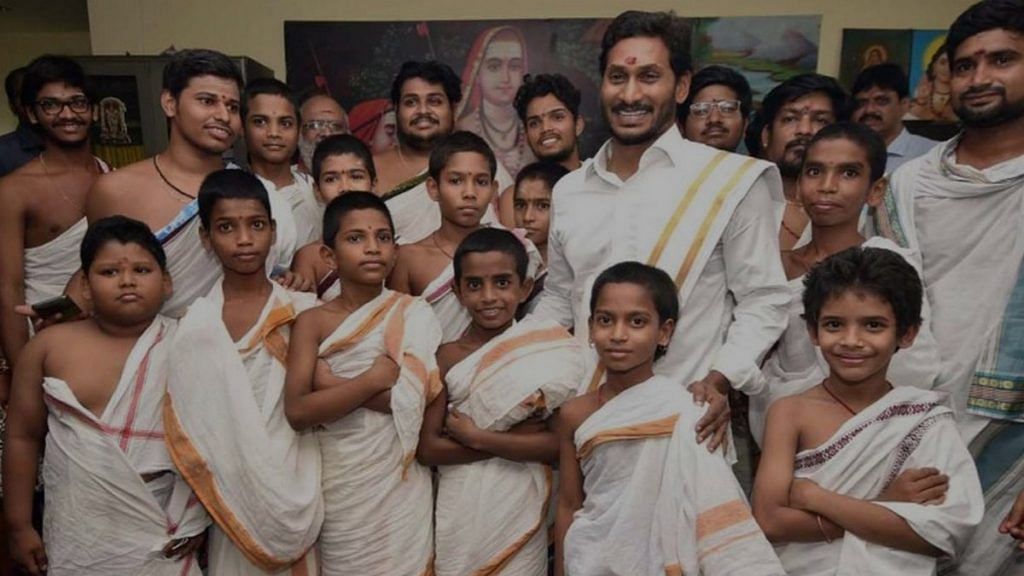Has being a Brahmin in today’s India become a stigma? Are we witnessing a silent social witch-hunt of an entire community under the garb of “historical justice”? Sadly, yes.
Across the country, Brahmins—despite their contributions in shaping India’s intellectual, administrative, and cultural legacy—are increasingly being vilified, shamed, and targeted. The hatred isn’t subtle anymore; it is systematic, and in many cases, even institutionalised. Whether on social media or in academia, in political campaigns or cinema, the Brahmin identity has been reduced to a convenient punching bag for imagined historical wrongs.
Let’s begin with a simple truth: Brahmins constitute barely 4% of India’s population today. They enjoy no reservation, no state-sponsored scholarships (barring Telugu states, where it was the TRS-turned BRS government under K Chandrasekhar Rao, which introduced scholarships to Brahmins to study overseas to pursue post-graduation courses. For that, Brahmins remain indebted to him. But today, that has been diluted or dispensed with due to lack of funds, no quotas in jobs or education, and yet, they continue to excel on merit, and merit alone. Be it in the fields of civil services, academia, science, or law, many have reached the top solely due to their talent and tireless hard work.
Is this not something to be acknowledged rather than ridiculed?

Recently, Bengaluru-based entrepreneur and CEO Anuradha Tiwari sparked a storm with her tweet: “Brahmin genes.” Two words—so loaded in today’s climate of identity politics that they drew a torrent of online abuse and accusations of “caste supremacy.” But her response was a wake-up call to many: “As expected, a mere mention of the word ‘Brahmin’ triggered many inferior beings… UCs get nothing from the system—no reservations, no freebies. We earn everything on our own and have every right to be proud of our lineage.”
She went on to say what most Brahmins feel but are afraid to express: “Proud Dalit/Muslim/Tribal – Okay. Proud Brahmin – Not okay.”
Why this double standard?

Should Brahmins be ashamed of who they are because of alleged actions centuries ago—actions whose veracity is still debated and whose scale is most certainly exaggerated by modern-day left-liberal academia and political opportunists? Are we to carry the burden of ambiguous historical narratives forever while others weaponize identity for state-sponsored benefits?
Brahmins were historically entrusted with the preservation of knowledge, not power or wealth. Most lived modest lives. Yes, the varna system existed, but over time it morphed from a flexible occupational structure to a rigid caste system—thanks in no small measure to colonial and later political distortions.

Were there social injustices in India? Certainly. But to blame one micro-minority—Brahmins—for the ills of an entire civilisation is intellectual dishonesty of the highest order. It is akin to blaming all Muslims for the invasions of Ghazni or all British citizens for the crimes of the Raj.
Ironically, many of today’s Dalit and backward caste leaders—who preach Brahmin-bashing from political pulpits—trust only Brahmin civil servants and advisors when it comes to managing sensitive administrative tasks. Why? Because they know Brahmins bring competence, integrity, and balance to governance.

It’s time to call out the hypocrisy. If it is perfectly legal to punish caste-based discrimination against SC/ST communities under the Atrocities Act, why should there be no similar legal deterrent for open hate speech, slander, and systemic exclusion of Brahmins?
When people are attacked or denied opportunities just because of their surname or lineage, is it not discrimination? When popular media paints Brahmins as villains or oppressors by default, does it not amount to hate speech?
India must now seriously consider an anti-caste hate law that protects all communities—including Brahmins—from organised vilification and abuse. Just as Article 15 of the Constitution prohibits discrimination on the grounds of caste, so too must society—and the judiciary—ensure this applies uniformly.
Former Andhra Pradesh Chief Minister Dr. Y.S. Rajasekhar Reddy understood this well. He pushed for educational empowerment among Dalits and backward classes so they could compete, not just claim. That’s the way forward. You uplift without putting others down.
Talent cannot be sacrificed at the altar of social justice tokenism. If India wants to emerge as a knowledge-based superpower, it cannot afford to demonise the very community that has historically nurtured its intellectual capital.
Anuradha Tiwari’s brave voice should become a rallying cry: be unapologetic about your identity. Enough of the guilt trips, enough of the silence.
Brahmins have never asked for special treatment. But they do deserve respect. They have contributed silently, even when sidelined. They have upheld the traditions of learning, sacrifice, and nation-building.
It’s time India stopped punishing them for their ancestors’ supposed sins—and started protecting them from today’s very real injustices.
Let us not create a new generation of untouchables—this time, wearing the sacred thread.




